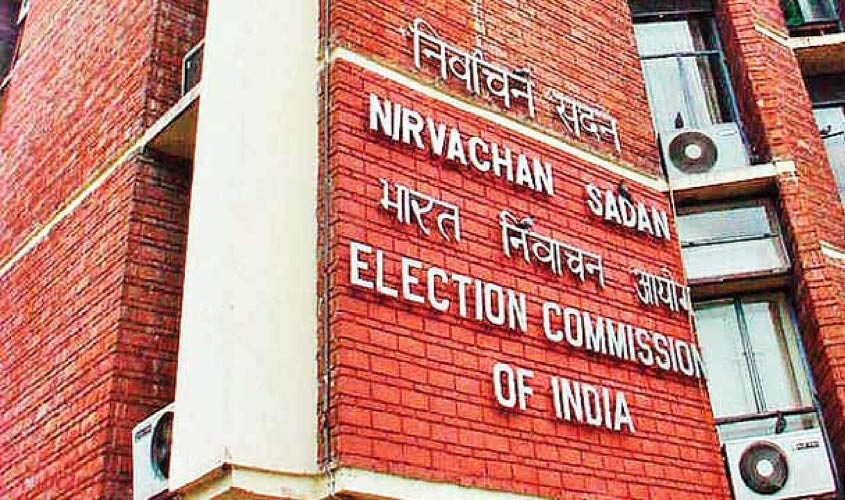While the BJP is looking to return to power, Congress is trying to become the single-largest bloc within the Opposition camp.
New Delhi: With the Election Commission all set to announce the dates for the Lok Sabha polls, major national parties—BJP and Congress—are fine-tuning their strategies, making it a do-or-die battle, thereby opening the scope for post-poll alliances. In this highly polarised election, focus of the entire Opposition is on throwing Prime Minister Narendra Modi out of power, rather than coming to power. The poll dates are likely to be announced any time from now.
The ruling BJP is making every effort to come back to power. Though the party has stitched alliances in many states, the role of Biju Janata Dal (BJD) and Telangana Rashtra Samiti (TRS) which have so far maintained equidistance from both BJP and Congress, will be crucial for any post-poll formulations in case the National Democratic Alliance (NDA) fails to muster the required numbers.
The Congress, on the other hand, is trying its best to become the single-largest bloc within the Opposition camp so that it can lay claim to the Prime Minister’s post, with the support of regional parties, in case the NDA falls short of the majority. It also has the challenge to stay relevant in national politics after it was reduced to 44 seats the last time. “In case the party fails to muster a majority from other parties, it may support a consensus candidate from the Opposition camp for the PM’s post. The main idea is, anyhow check the BJP from returning to power. It’s a do-or-die battle for Congress as well as many regional parties. So, many new alliances could emerge after the elections,” said sources.
This is also for the first time in recent times that there is no Third Front in the picture and all the Opposition parties are somehow aligning with the Congress, calling it “mahagathbandhan” (grand alliance), to counter the BJP. The idea of a “Federal Front”, floated by K. Chandrashekhar Rao, has fallen flat. However, there is hardly any cohesiveness within the grand alliance and no united face has emerged for the Prime Minister’s post so far. According to a source, everything will depend on the post-poll scenario. “That way, it is going to be a very uncertain election where the anti-BJP forces can make any type of compromise after the elections to ensure that Modi does not return to power,” he added.
That, however, doesn’t make the BJP’s case easy nor is the party taking the battle easily. It has gradually stitched alliances with regional parties in order to consolidate its position in many states. The recent alliance was finalised with Shiromani Akali Dal (SAD) in Punjab. In Jharkhand also, it has finalised its alliance with All Jharkhand Students’ Union (AJSU), according to which BJP will contest on 13 seats while AJSU will fight on one.
The party has already sealed alliances with Janata Dal-United (JDU) in Bihar, Shiv Sena in Maharashtra and All India Anna Dravida Munnetra Kazhagam (AIADMK) in Tamil Nadu. It is also talking to small parties like Apna Dal in Uttar Pradesh to check division of votes in eastern parts of the state.
The Congress, on the other hand, is playing its cards carefully, keeping long term goals in mind. After giving an organisational role to Priyanka Vadra, the party is trying to consolidate its support base in Delhi by deciding not to contest in alliance with Aam Aadmi Party (AAP). Although party was given only two seats by the SP and BSP in UP, the Congress unilaterally announced to field 15 candidates in the state, which may force the two regional parties to review their arrangement.
It’s a matter of survival for regional parties—like the SP and BSP—which were demolished by the BJP in the last elections—both Lok Sabha and Assembly. The two parties decided to sink their old rivalry and contest the elections together.
In the last general elections in 2014, the BJP had won 282 seats out of 427 it contested riding the “Modi wave”. Though Modi still enjoys the goodwill of the people on several fronts, there are a few grey areas which his government failed to address, say political observers. Moreover, there are a number of party MPs whose performance has not been satisfactory.
Acting on these feedbacks and to neutralise the anti-incumbency factor, the BJP, sources said, is planning to deny ticket to some 90 sitting MPs—including to those who have crossed the age of 75 years. The party
There are as many as 19 MPs who have crossed the age limit of 75 years. They include L.K. Advani, Murli Manohar Joshi, Karia Munda, Shanta Kumar, B.C. Khanduri, Lila Dharbhai Vaghela, Kalraj Mishra, Ram Tahal Chaudhary and Hukumdeo Narayan Yadav. Another senior leader Sushma Swaraj has already expressed her wish not to contest the elections this time.

